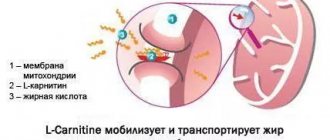A contraceptive side effect is an undesirable, negative consequence of using medications aimed at preventing pregnancy. It is regarded by doctors as an inadequate response of the body to one or more substances contained in tablets, implants, patches, intrauterine devices.
Barrier contraception is not considered in this regard, since there are very few adverse reactions and all of them are predominantly local.
The most common adverse reactions when taking birth control pills
With correctly prescribed contraceptives, doctors prevent unwanted pregnancy and restore a woman’s regular menstrual cycle. However, each drug annotation indicates the most likely adverse reactions:
- Decreased libido, slight or progressive. Sometimes in the first months of taking contraceptive symptoms no symptoms arise; they can appear gradually after normalization of altered hormonal levels.
- Mood swings. The woman becomes irritable, tearful, apathy appears, giving way to mental activity. Sometimes she suffers from insomnia or, conversely, excessive sleepiness.
- Headache. Due to changes in the functioning of the endocrine glands, the activity of the brain and its blood supply change. Against this background, mild headaches are possible. If the patient has a history of migraines or idiopathic severe pain, hormones may aggravate them.
- Vaginal bleeding. Slight brown discharge in the first three months after taking contraceptives is considered normal. If the appearance of a small amount of blood on your underwear is not accompanied by pain in the lower abdomen and other unpleasant symptoms, there is no need to panic. If bleeding occurs, you should immediately seek emergency medical help.
- The appearance of blood clots. Due to an increase in the volume of estrogen produced, the composition of the blood changes. If the patient does not have chronic blood pathologies that can cause thrombosis, there will be no problems - even if a clot forms in the vessel, the body will dissolve it on its own.
- Skin problems, local or general. IUDs, implants, and patches can cause vaginal itching. At the site where patches and implants are installed, there may be redness of the skin, slight swelling, and the appearance of blisters. Oral contraceptives can either reduce the amount of acne on your face or increase it.
- Hair loss, deterioration of nails. Typically, the doctor in this case diagnoses diffuse but minor hair loss. Women notice a large number of hairs on their comb, in the bathroom after washing their hair.
- Nausea. Estrogen, especially when taking oral contraceptives, enters the gastrointestinal tract, irritating the stomach, so in the first months the girl feels painful sensations in the epigastric region. Sometimes accompanied by vomiting and stomach pain.
Breast engorgement is another minor sign of so-called addiction to contraceptives. A woman also faces other negative consequences of taking contraceptives: pigmentation, swelling on the face, excess weight (+5 kg and above), bloating, flatulence or constipation.
If these side effects do not go away within 3 months or become pronounced, you should consult a gynecologist. If measures are not taken to eliminate negative signs, serious complications are possible: thromboembolism, pulmonary artery thrombosis, and in some situations even strokes and myocardial infarction are possible.
Oral contraceptives: harm or benefit? Gynecologist answers questions
Obstetrician-gynecologist of the network of clinics “Personal Doctor” Tatyana Valerievna Imidoeva answers questions
Make an appointment at the Personal Doctor clinic in St. Petersburg - consult a New York specialist! The number of appointments is limited!
Stink today!
Tatyana Valerievna, tell our readers about modern hormonal contraceptives, what are they and how do they work?
Hormonal contraceptive pills can easily be called a unique discovery of the 20th century, which made a breakthrough in modern contraception. More than 50% of women in Europe and America prefer this method of preventing unwanted pregnancy. Unfortunately, oral contraceptives are not so popular in Russia. The main reason is myths and fears that prevent you from contacting a gynecologist, getting competent advice and a prescription for one of the most reliable contraceptives. Most of all, patients are frightened by the word “hormonal”, which paints the image of a “hairy fatty” who will no longer be able to have children or will certainly get cancer. These fears are from the past - from the 60-80s of the 20th century, when there were 2-3 drugs and the doses of hormones in them were more than 2-5 times higher than modern ones. Today, more than 20 oral contraceptives (OCs) with ideally selected microdoses of synthetic hormones are produced. Many of the modern OCs are not just means of preventing pregnancy, but also therapeutic drugs.
The principle of operation of all oral contraceptives is that under their influence, ovulation is blocked, i.e. the egg does not mature and does not leave the ovary, so the sperm have nothing to fertilize, and pregnancy does not occur.
Can taking hormonal contraceptives lead to infertility?
No, if the doctor prescribed contraceptives and prescribed the correct regimen for taking these drugs. The possibility of conception is restored 1 to 3 months after stopping taking the pills.
How long can you continue taking birth control pills without harming your body?
If there are no contraindications to taking birth control pills, then a woman can use this method of preventing unwanted pregnancy for as long as she needs it. Previously, it was believed that breaks were needed in taking oral contraceptives so that the ovaries did not “forget” their function. To date, there is no reliable statistical data that long-term use of OCs somehow negatively affects a woman’s reproductive system. On the contrary, there is evidence that breaks in taking birth control pills are a stress factor for the endocrine system, as they force the body to first spend a period adapting to taking OCs, and then again adjust to stopping the drug.
Is it necessary to change birth control pills periodically?
If the drug was correctly selected by the gynecologist and justified its effect, then there is simply no point in switching to another. It is advisable to replace the drug only if negative symptoms associated with taking OCs occur and they continue for more than three months from the start of taking the tablets. It must be remembered that contacting a gynecologist in this case is mandatory, since these symptoms may not indicate individual intolerance to a hormonal contraceptive, but the presence of some gynecological disease.
What is the likelihood of gaining excess weight while taking COCs?
A healthy woman who eats rationally and leads an active lifestyle can safely take birth control pills without fear of ruining her figure. The main thing is that before you start using hormonal contraception for the first time in your life, you must definitely contact a gynecologist for consultation and undergo all the necessary tests (detailed family and personal history, measurement of blood pressure, laboratory tests that necessarily include examination of blood clotting and hormonal levels), gynecological examination (including ultrasound examination of the pelvic organs, oncocytology) and consultation with a mammologist.
Until what age can you take birth control pills?
Age itself cannot serve as a contraindication for hormonal contraception. However, after the onset of menopause, when contraception is no longer required, using these drugs is inappropriate and sometimes even harmful to women’s health. In the period preceding menopause, it is also recommended, in consultation with a gynecologist, to replace conventional contraceptives with special hormonal agents used to compensate for the deficiency of hormones, the production of which significantly decreases with age (the so-called hormone replacement therapy (HRT)).
The correct selection of hormones in the period preceding menopause allows a woman to feel healthy, confident, and forget about hot flashes and sudden mood swings characteristic of the perimenopausal period.
Is the effect of oral contraceptives dangerous for the fetus if pregnancy occurs while taking them?
If the patient started taking oral contraceptives during pregnancy and this lasted no more than the first month of pregnancy, then they are completely safe for the unborn child. However, since in the sixth week of pregnancy the fetus begins to develop genital organs that are sensitive to the effects of hormones, hormonal medications can lead to certain disorders. In such cases, you should consult a doctor immediately.
Do oral contraceptives provide any protection against sexually transmitted diseases (STDs)?
No, birth control pills of any kind do not protect against sexually transmitted diseases and AIDS. In this sense, this method of contraception is suitable only for women who have a regular sexual partner, or for those who additionally use a condom. Only then can the actual safety of sexual intercourse be guaranteed.
How compatible are hormonal contraceptives with other medications?
The compatibility of drugs in each case may be different; it is best determined by a doctor. With this in mind, you must warn the specialist who prescribes you this or that drug that you are taking birth control pills, and accordingly, vice versa, the gynecologist should be informed about the medications you are using.
If there is a single or short-term need to take a drug that obviously reduces the contraceptive properties of the pills, during this period it is recommended to use an additional method of protection against unwanted pregnancy.
In what situations are additional contraceptive methods necessary?
The need for additional contraceptives may arise, as we have already said, in the case of taking a number of medications that reduce contraceptive properties. In addition, the use of condoms is recommended for vomiting or diarrhea that is caused by food poisoning. Hormonal substances are poorly absorbed into a weakened body, so the likelihood of pregnancy increases markedly.
In addition, it is recommended to use additional methods of contraception if you forget to take several pills. Be sure to also use a condom when having sexual intercourse with a new partner to ensure protection against sexually transmitted diseases.
In what cases is it necessary to contact a gynecologist when taking hormonal contraceptives?
In general, a woman needs to visit a gynecologist once every six months, and this applies to both those taking birth control pills and those who do not use them. However, if any unusual phenomena occur (for example, the appearance of spotting bloody discharge from the vagina), and even more so if pain occurs in the lower abdomen, it is necessary to visit a gynecologist unscheduled.
Are you not in St. Petersburg?
Do you have any questions for Evgenia Vladimirovna?
Sign up for a paid consultation via SKYPE!
If you are now in St. Petersburg,
— for any questions, call us, make an appointment with a gynecologist!
Appointment with examination and recommendations of a doctor of the highest category with an international certificate (GCP - Good Clinical Practice) only 1800 rubles.
We have no hidden fees! Call.
Make an appointment with the Personal Doctor clinic right now!
Hurry up, the number of doctor appointments per day is limited!
| Call! E single number: 426-15-05 | ||
| St. Petersburg, Bolshevikov Ave., building 30, bldg. 2 (Nevsky district, metro station "Ul. Dybenko") | ||
| St. Petersburg, Kolpino, st. Communes building 23, m. Kupchino | ||
7 reasons to make an appointment with a doctor at the Personal Doctor clinic
1. The best doctors of St. Petersburg see residents of St. Petersburg and the Leningrad region. Leading doctors completed internships in the USA and passed on their experience to their colleagues!
Most of our doctors have international certificates (GCP - Good Clinical Practice)!
2. We provide a quality guarantee for consultations with our doctors.
3. You can visit the doctor on weekends and holidays (the Personal Doctor clinic is open seven days a week).
4. You will save time, because. You will see a doctor by appointment - without queues.
5. You can get a sick leave certificate from our doctors, without visiting the clinic.
6. You will receive your test results quickly and without errors. We perform more than 2000 blood, urine, stool tests, as well as spermograms.
7. Our doctors will treat you like relatives: they will listen carefully and do everything possible to help solve your problem in the most effective way.
8. In our clinic you can get an alternative opinion from a specialist certified in New York.
3 SIMPLE WAYS TO DO BREAST SELF-EXAMINATION
Chest pain? - Don't miss the symptoms of breast cancer! , learn yourself and help your mother and friends!
DID NOT YOU FIND WHAT YOU WERE LOOKING FOR?
1. USE THE CONVENIENT SITE SEARCH!
2. OR ASK A QUESTION TO THE DOCTOR ON THE FORUM (24 HOURS)
3. OR JUST CALL US!
M multi-channel single number: 426-15-05
By
Diagnosis before selecting contraceptives
The patient’s complaints about changes in health status become indications for a full diagnosis. In addition to general laboratory tests, the gynecologist prescribes a study on blood biochemistry and hormonal composition of the blood, determination of hemostasis (blood formation), and also proceeds to instrumental diagnostics:
- Ultrasound of the pelvic organs;
- Colposcopy;
- Survey mammography.
It is important for the doctor to differentiate the pathology from other diseases. Typically described adverse reactions are signs of inflammatory processes, benign and malignant neoplasms of the genitourinary system, diseases of the blood, gastrointestinal tract, cardiovascular system, and brain. Other highly specialized specialists are involved in the work of the gynecologist.
What types of birth control pills do pharmacies offer, and how do these drugs work?
Oral contraceptives are divided into two groups. Progestin preparations, popularly known as “mini-pills,” contain substances similar to progesterone, the hormone of pregnancy and the second phase of the menstrual cycle.
Combined oral contraceptives (COCs) contain both gestagens and estrogenic substances (synthetic or natural estradiol).
Depending on the combination of hormones, these drugs are high-dose, low-dose and micro-dose.
Remedies where doses of hormones are distributed according to phases of administration are divided into monophasic, biphasic and triphasic. In monophasic preparations, each tablet has the same dose of progestogen and estrogen. In biphasic preparations, the package contains two types of tablets with the same dose of estrogen, but the amount of progestogen varies depending on the phase of the menstrual cycle. Triphasic contraceptives include three types of pills with different ratios and doses of hormones.
If we talk about the principle of operation, combined oral contraceptives inhibit the process of ovulation in the ovaries, increase the thickness of the mucus of the cervical canal, and change the structure of the endometrium of the uterus. The “mini-pill” has a contraceptive effect due to changes in the physical properties of the endometrial mucosa, which lines the uterus from the inside, and cervical mucus. In this way, a “double” contraceptive effect is achieved: it is almost impossible for sperm to reach the egg, since the mucus in the cervix is thick and impenetrable. But if the sperm does reach the target, then the fertilized egg simply does not attach to the wall of the uterus.
Treatment for side effects
If the main reason for the change in the patient’s condition lies only in taking contraceptives, the doctor takes a wait-and-see approach, for example, changes the dosage of the drug, waits another month or two, and evaluates the result. In this case, auxiliary medications help reduce unpleasant symptoms:
- Sedatives;
- Antipruritic;
- Mild laxatives;
- Painkillers and others.
If the adverse reactions are severe, the gynecologist discontinues the drug and replaces it with another. Sometimes complete withdrawal of hormonal drugs is required. Sometimes the intervention of phlebologists, cardiologists, and other specialists is required.
What is the danger?
Those hormones that are part of contraceptives differ from the natural hormones synthesized by the body. But despite some differences in structure, the brain perceives them as its own hormones. Therefore, after taking a hormonal pill, the brain receives a signal about high levels of estrogen and gives the command to stop producing its own hormones. The centers that synthesize estrogens (including the ovaries) seem to fall asleep, which means that all the processes that took place in them change. Due to malnutrition and slow blood circulation, the ovaries decrease in size and atrophy. The structure of the endometrium also changes. As a result, even after stopping the OC, a woman often cannot get pregnant. In some cases, you even have to turn to IVF help.
Oral contraceptives also affect blood viscosity: it becomes thicker, therefore, the likelihood of thrombosis increases. The condition of the blood vessels worsens (their conductivity decreases). In addition, oral contraceptives can cause breast and uterine cancer.
Another consequence is excess weight. Contraceptives increase the concentration of glucose in the blood, which provokes too active insulin production and metabolic problems.
What if you missed a pill?
Combined oral contraceptives
If you forget to take your COC tablet, there is no need to panic, just take it as soon as you remember. If one day has already passed, you can take two tablets at once or during that day with a gap. If two days in a row are missed, take two tablets on the same day and two the next day. If you have missed more than two days, it is better to consult your doctor first. You will most likely need to start a new pack of contraceptives to restart your cycle.
The moment you forget to take the drug, it is better to use an alternative method of contraception, such as a condom, as additional protection. If you forgot to take one of the last 7 tablets, it is not so critical, as they are just a placebo.
Mini-pill
With mini-pills the situation is more complicated, since it is important to take them at the same time every day, and the effect disappears faster. If you miss a dose by no more than 3 or 12 hours (depending on the drug), then take the pill as soon as you remember. Take the next one at the same time that was initially allotted for taking it, even if you end up taking 2 tablets in one day. In such a situation, when you have not exceeded the permissible time, no additional measures need to be taken. But if more than 3 or 12 hours have passed, then it should be taken into account that now you will need to use an additional contraceptive for at least two days until the effect of the drug is restored after resuming use.2
Before continuing to take contraceptives after skipping, it is recommended to make sure that conception has not occurred using a home pregnancy test. Additionally, if you haven't missed any pills but are missing your period, it's also worth taking a test. Protection against conception can be as important as protection against sexually transmitted infections. Therefore, the use of a condom may be necessary in some cases.
Who should not take birth control pills?
Contraindications for taking COCs, in accordance with WHO recommendations [1], include a body mass index of more than 30, venous thrombosis, pregnancy, breastfeeding, and smoking more than 20 cigarettes per day. Since smoking itself increases the risk of blood clots, most doctors will refuse to prescribe hormonal contraceptives for women who smoke after 35 years of age. Also, alcoholism and the use of psychoactive substances can have a negative effect while taking contraceptives.
Also, combined oral contraceptives should not be taken by diabetics with vascular disorders or more than 20 years of experience, as well as by people with gallbladder disease, coronary heart disease or complications with the valve apparatus. In addition, the use of COCs is limited for hepatitis, liver tumors, and breast cancer. Most studies have failed to make a reliable connection between the use of hormonal contraceptives and the occurrence of breast cancer. Statistics show [4] that women with a history of breast cancer, late menopause, giving birth after forty years, or who have never given birth are at risk.
There are fewer restrictions on taking the mini-pill. They should not be taken by pregnant women, or by breastfeeding women earlier than six weeks after giving birth, or by women with breast cancer, hepatitis, tumors or cirrhosis of the liver.
Additional Tips
It is in a woman's best interest to follow the instructions in the instructions. To increase your contraceptive protection, always take your pill at the same time every day. If you are a very active person and constantly go to different places, then it is better to always carry them with you. Use another form of contraception, such as a condom or spermicidal foam, if you forget to take your birth control pills. Another tip: make sure you get a new pack before the previous one runs out. Finally, always tell your doctor that you are taking oral contraceptives.
( 3 ratings, average: 4.00 out of 5)







